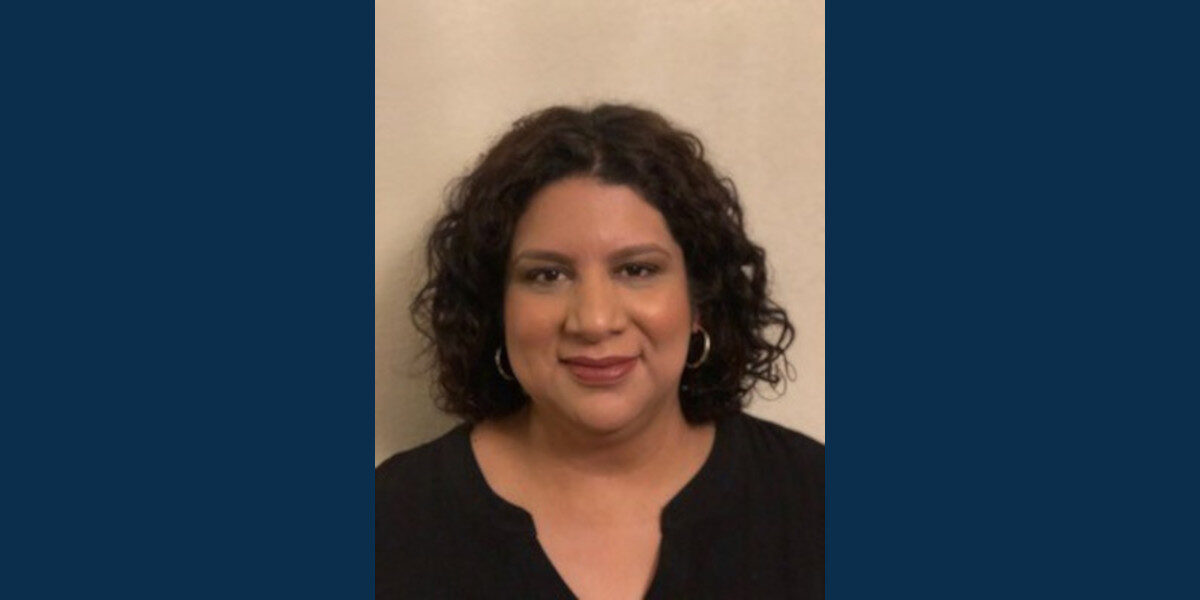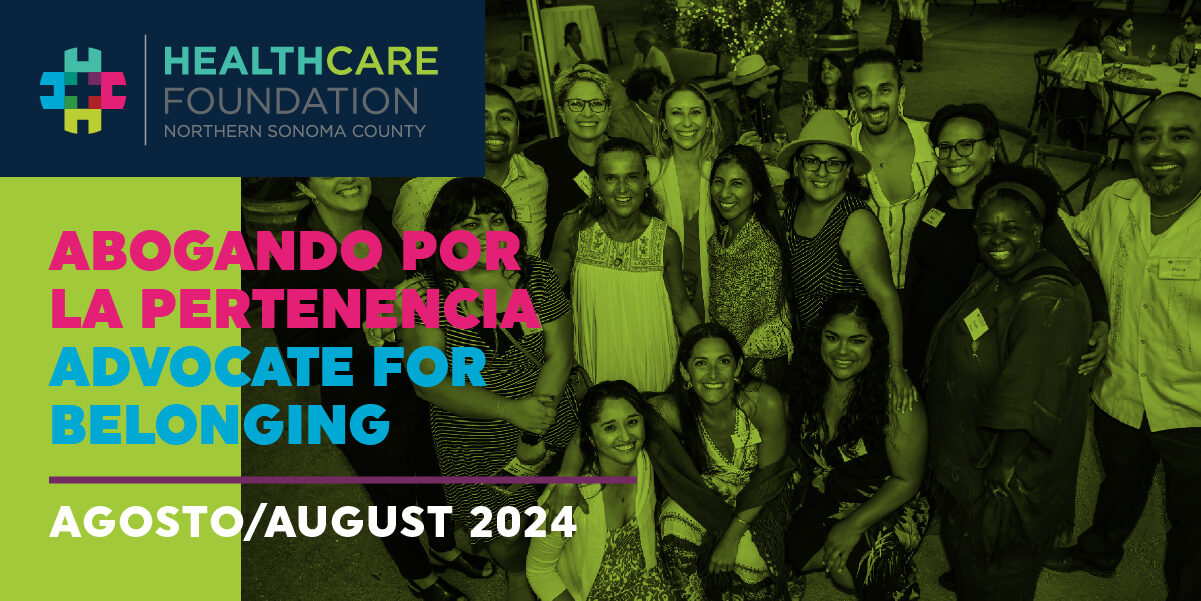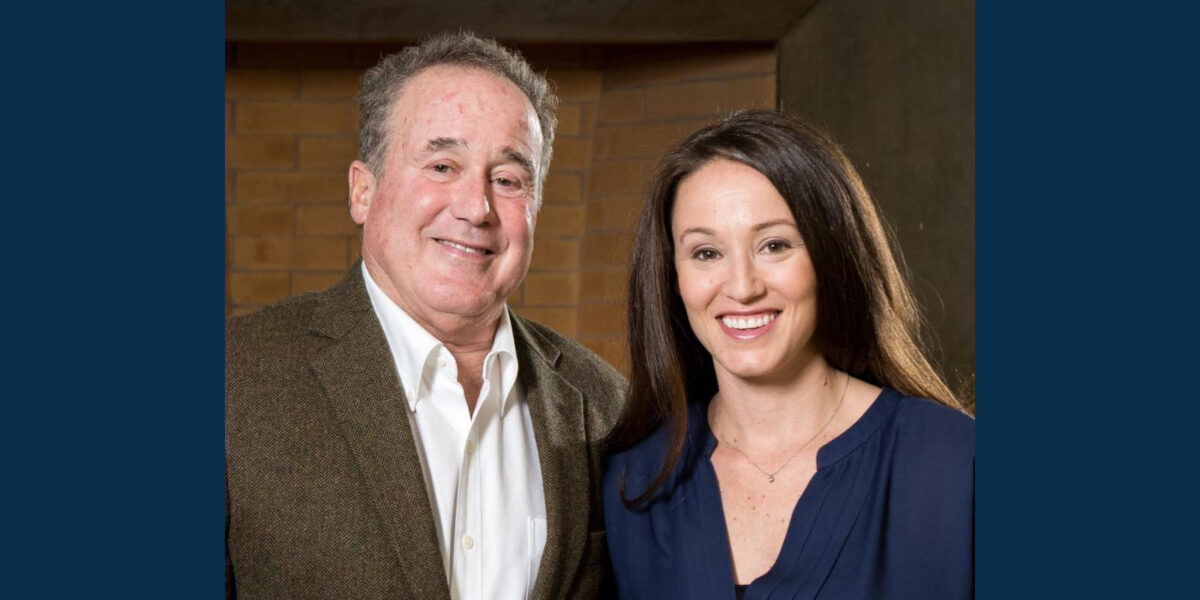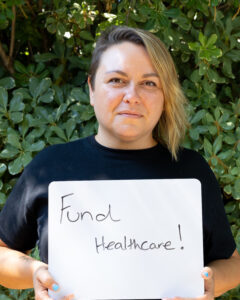Sonia Agular received her master’s degree in counseling psychology with a concentration in Marriage and Family Therapy (MFT) from USF Santa Rosa in May 2022. Sonia was one of six participants in the Healthcare Foundation’s Mental Health Talent Pipeline (MHTP) to graduate that day, MHTP’s largest cohort yet!
Sonia is currently a practicing clinician and post-master’s fellow at Kaiser Permanente Santa Rosa Medical Center in its department of Mental Health and Wellness, which is the Center’s second-largest department serving more than 135,000 members.
The Post-Master’s Mental Health Fellowship program provides advanced training and clinical supervision, and meets requirements for supervised training for Associate Marriage & Family Therapists, Associate Clinical Social Workers and Associate Professional Clinical Counselors working toward licensure.
Sonia started at Kaiser in September 2022. She took time recently from a very busy schedule to speak with us about her first six months on the job.
What is it you’re doing day to day at Kaiser?
I mainly work in the adult [department] team providing therapy services. I’m what you’d call a generalist. I’ll see a variety of patients with different disorders. I’m also a bilingual clinician at Kaiser, so I can provide services to monolingual patients reaching out for support.
Do you work with clients in an ongoing fashion?
Yes. They get referred from triage, so this is an ongoing type of treatment. We offer individual as well as couples therapy. We have one Spanish-speaking couple now that I’m about to start working with.
“We need more bilingual, bicultural clinicians. . . . In the mental health services setting, it’s all the more important to have clinicians who can understand what people are saying as well as where they’re coming from.”
Sonia Aguilar, Kaiser Permanente Therapist and Mental Health Talent Pipeline Alumna
You’re about six months into your position at Kaiser, how are you finding the transition from school to becoming a practicing clinician?
I’ve had a great experience in terms of on-the-job training. It has exceeded my expectations. I’m grateful for that. Every Thursday we have two hours worth of training, and I’m constantly invited to attend Kaiser’s seminars regarding different types of disorders and therapeutic orientations. In terms of the nature of the work, it’s a hospital model. We provide treatment based on a given episode. It’s situational. In terms of my caseload, I have reserved spots for new patients and they’re constantly being filled. The need is great. We’re struggling to meet the demand for behavioral health services.
How many of your patients are Spanish-speaking?
I have a variety of patients, with about a quarter of my patients being Spanish-speaking. Another quarter are bilingual in Asian languages. The rest are mostly English-speaking. It’s diverse. I have also started co-facilitating a DBT skills group, which is fully in Spanish.
What is DBT?
Dialectical Behavioral Therapy. It’s a form of cognitive behavioral therapy that can help with emotion regulation. This is a skills group, with three of us facilitating. I’ve recently joined the team and I’m really happy about that.
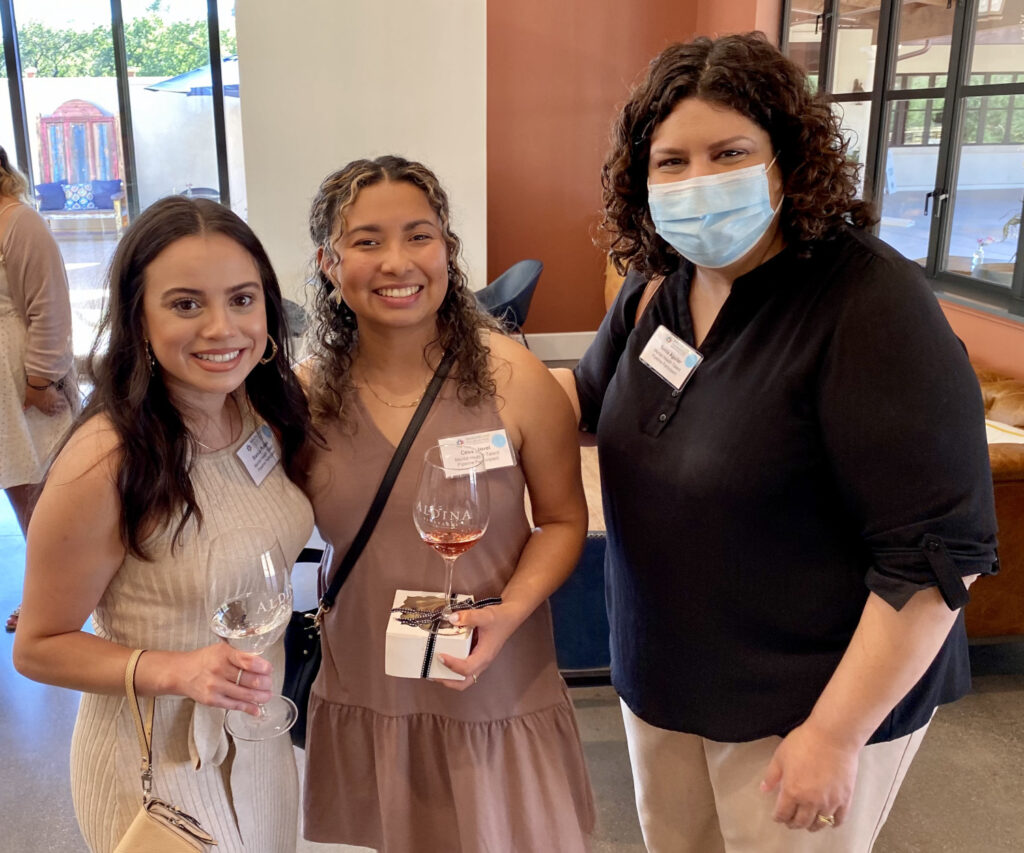
When we spoke in September 2021 you said that as a then-aspiring bilingual and bicultural therapist, and as an immigrant yourself, you were looking forward to being of service to the Latino community.
It’s part of my value system, why I went back to school and decided to do this work. It’s been so rewarding to be able to be present with the Latino community, teaching these skills and getting feedback from the patients as they’re practicing them.
Can you say more about the need you’re seeing, especially as it relates to your patients who are bilingual or monolingual in Spanish?
For my bilingual and bicultural patients, there’s a need to be heard, a need to be validated in terms of navigating two cultures in life. With my monolingual patients, the language barrier can be particularly hard—when someone is translating for them, for example, instead of being able to have a direct, one-on-one conversation with a therapist. Especially given the racism that many experience in their lives—in their workplaces, in society in general—there’s a need that they have to communicate and express themselves without feeling judged. That always comes up in our conversations. Those are added layers of stress, added layers of oppression that they’re dealing with on a daily basis. There’s generally not enough understanding and empathy out there when it comes to the position of a minority or an immigrant.
Is there anything else you would like to help people appreciate about the work you do and the people you serve?
We need more bilingual, bicultural clinicians. We don’t have enough of them. Every human being needs understanding. And in the mental health services setting, it’s all the more important to have clinicians who can understand what people are saying—literally what they’re saying, as well as where they’re coming from. It’s part of the path to health.

Related News + Stories
Invest in Our Community
Your support is vital to our collective vision of eliminating health inequities in northern Sonoma County.
Donate

